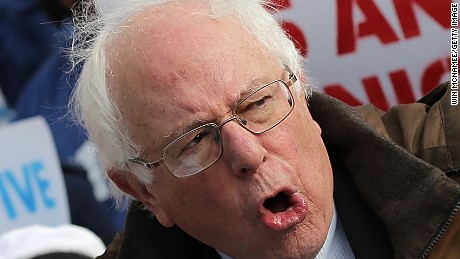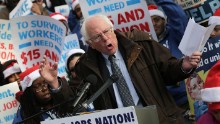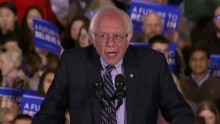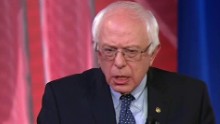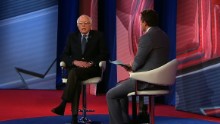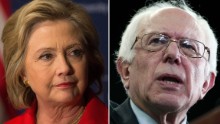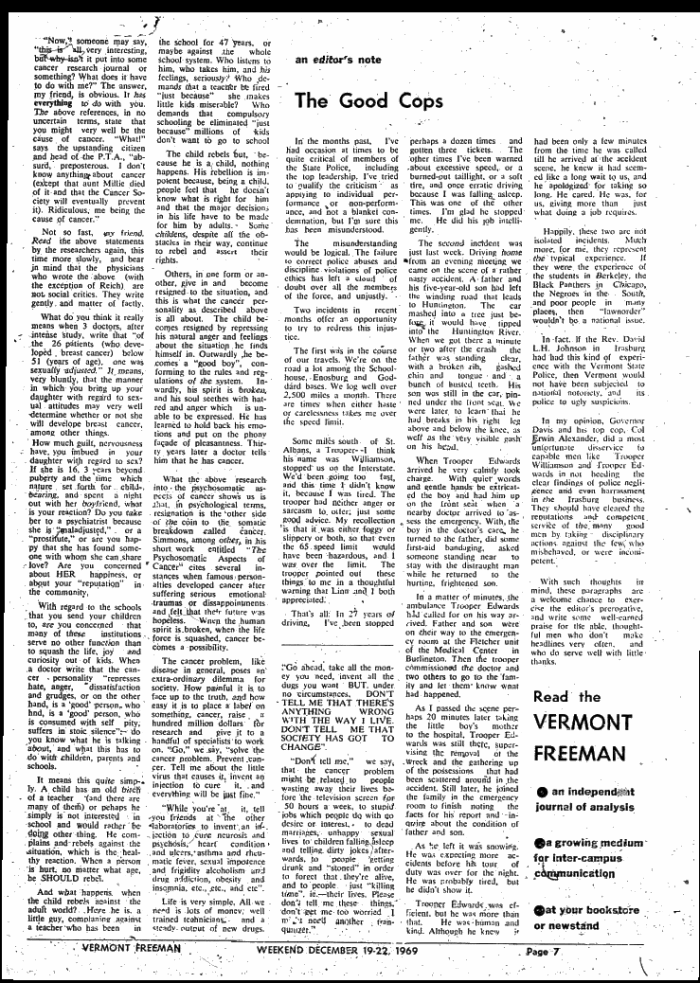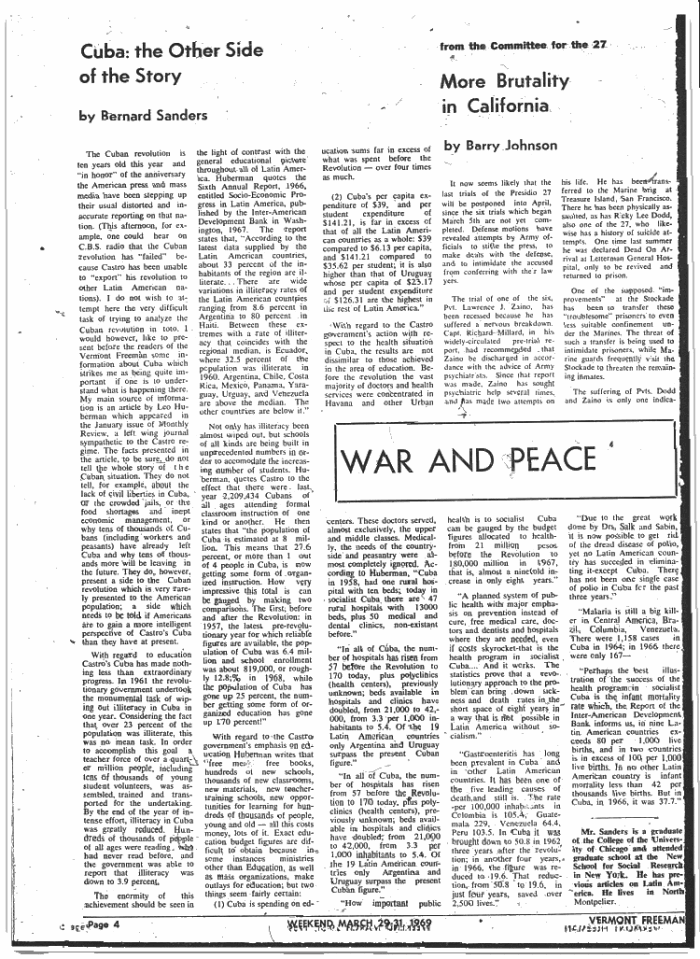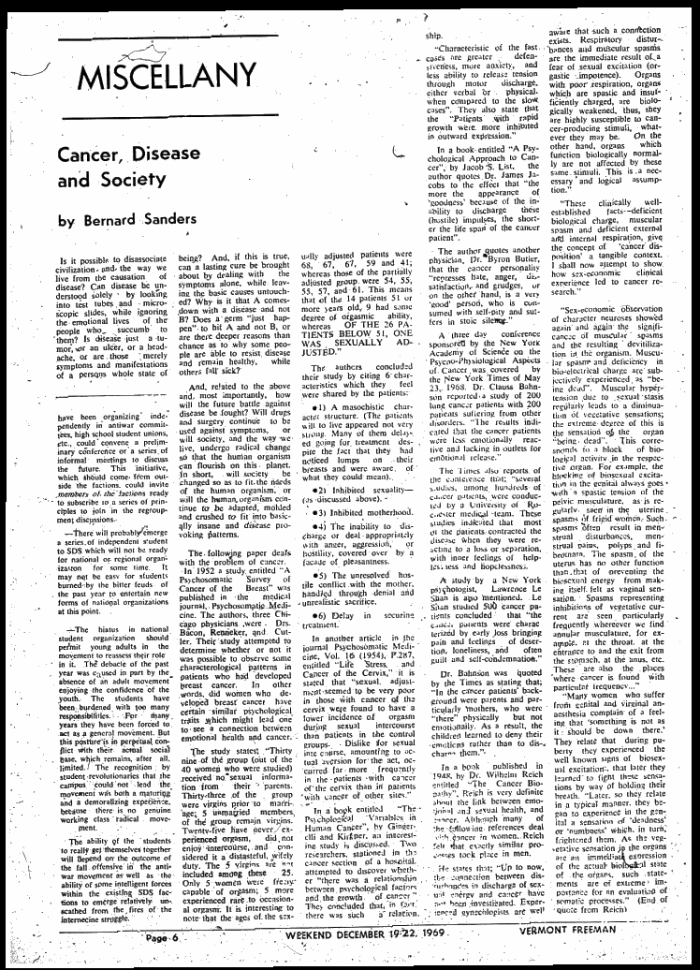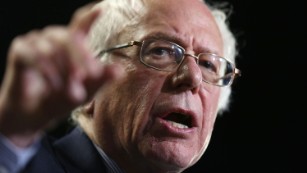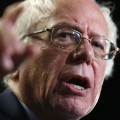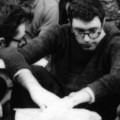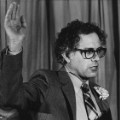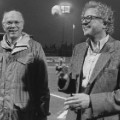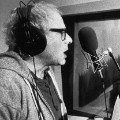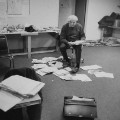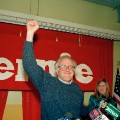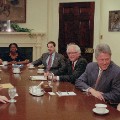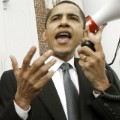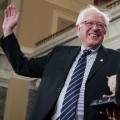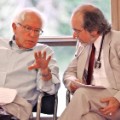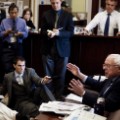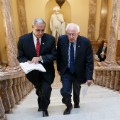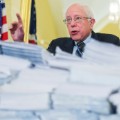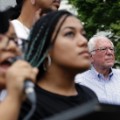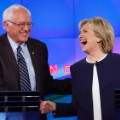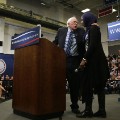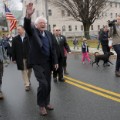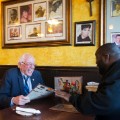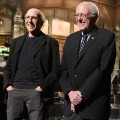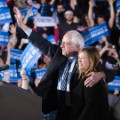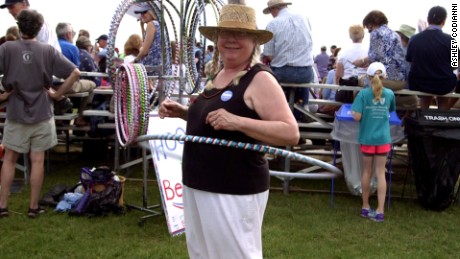Story highlights
- CNN obtained a handful of Sanders' early writings
- They show a young man challenging society's views
(CNN)Editor's note: This article contains language that may be offensive to some readers.
In 1969, just a few years before Bernie Sanders first sought public office, he penned a number of columns on a variety of topics: sexuality -- including violent rape fantasies and the sexual development of children -- emotional links to cancer, foreign relations and the failures of traditional education.
He rails against "conservative" education -- what he viewed as an ineffective and soulless learning environment where children must "sit still for 7 hours a day ... and raise their hands when they have to go to the bathroom."
It was a theme he returned to repeatedly that year, denouncing authoritarian teaching styles.
Often "a child has an old bitch of a teacher (and there are many of them) or pehaps (sic) he simply is not interested in school and would rather be doing other thing (sic)," Sanders wrote in his column, "Cancer, Disease and Society," for an alternative publication called The Vermont Freeman.
CNN obtained a handful of Sanders' early writings, some of which have not been seen by the public in decades, that show a young man challenging the views of society more than four decades before he would try to lead an insurgent presidential campaign. The writings reflect the philosophical development of a 30-year-old whose future as a senator and presidential candidate appeared extremely unlikely.
Sanders' early writings and political career have gotten little notice as his underdog campaign has grown into a grass-roots juggernaut that has challenged Hillary Clinton's establishment candidacy. A few publications, including Mother Jones and Salon, have published pieces about his columns, but for the most part this chapter of his life remains largely unexplored. Sanders himself rarely talks about this period on the campaign trail.
Those who knew Sanders in his younger years, like his unofficial biographer, Greg Guma, who met him in 1971, say the writings are a reflection of the era.
"We were all talking about this -- smashing monogamy, exploring psychology, sexuality and the politics of sexuality," said Guma, who also wrote for The Vermont Freeman, describing the publication as the "only alternative game in town then."
Sanders wrote stand-alone columns and also conducted interviews, including a series on a Vermont college and how it was responding to student opposition to Vietnam, and a conversation with a farmer who rejected compulsory education.
Guma said Sanders wrote infrequently for the publication. "It wasn't a big part of his life," Guma recounts. "I don't think he was paid for those articles."
This post continues below these excerpts from Sanders' writings:
Writing about sexual relations
The Sanders campaign declined to comment for this story, citing his past comments on his Freeman writings, including a column about sexual relations between men and women.
In February 1972, when Sanders was simultaneously running for governor of Vermont and a seat in the U.S. Senate as a leftist-party candidate, he wrote an essay that opens with a violent rape fantasy.
"A man goes home and masturbates his typical fantasy. A woman on her knees, a woman tied up, a woman abused," Sanders wrote. "A woman enjoys intercourse with her man -- as she fantasizes being raped by 3 men simultaneously."
The graphic opening vignette leads to a larger point: Men need to step away from traditionally dominant roles and women should rise from traditionally submissive ones.
When this column, titled "Man and Woman," first surfaced in the progressive outlet Mother Jones last May, Sanders dismissed it as "a piece of fiction that I wrote in 1972 ... 43 years ago. It was very poorly written. And if you read it," he explained in an interview with NBC's Chuck Todd that same month, "what it was dealing with was gender stereotypes. Why some men like to oppress women. Why other women like to be submissive, something like '50 Shades Of Grey.'"
Sanders' various opinions put forth in his writings at the time are best encapsulated in a 1969 column called "The Revolution is Life Versus Death," a compilation of his musings against war and traditional education, and in favor of sexual freedom.
"The revolution comes when two strangers smile at each other, when a father refuses to send his child to school because schools destroy children, when a commune is started and people begin to trust each other, when a young man refuses to go to war and when a girl pushes aside all that her mother has 'taught' her and accepts her boyfriends (sic) love," Sanders asserts.
That same year, in "Cancer, Disease and Society," Sanders opined with some obvious Freudian influence (he studied psychology at Brooklyn College) during the Vietnam era's free love movement, giving credence to a theory that a lack of orgasms and enjoyment of sex causes cervical and other female cancers.
Citing now-debunked studies from the 1950s, he even makes a case for why underage sex can be healthy.
"It means, very bluntly, that the manner in which you bring up your daughter with regard to sexual attitudes may very well determine whether or not she will develop breast cancer, among other things," Sanders wrote. "If she is 16, 3 years beyond puberty and the time which nature set forth for child-bearing and spent a night out with her boyfriend, what is your reaction?... Are you concerned about her happiness or about your 'reputation' in the community."
His Freeman writings are a glimpse into the mind of a young man with a transient career path whose enthusiastic -- if unsuccessful -- political career was just beginning.
By 1976, Sanders had run twice each for governor and the Senate, as a candidate of the Liberty Union Party. The more colorful elements of the third party's platform included a call for the Rockefeller family fortune to be seized to fund government programs; legalizing all drugs, including heroin; and widening the ramps of interstate highways to make it easier for drivers to pick up hitchhikers.
He lost all four elections, attracting no more than single-digit support in each race.
During these early years in Vermont, Sanders supported his constant quest for public office working odd jobs as a carpenter, a documentarian, a door-to-door film strip salesman and, while running his first campaign, subsisting on unemployment benefits.
A little-discussed chapter in Bernie Sanders' life
They are times Sanders talks little about, even though his hardscrabble years could endear him to struggling Americans who are gravitating toward his message of a rigged economy and income inequality.
With the exception of his efforts during the Civil-Rights era -- organizing a 15-day sit-in as an undergrad at the University of Chicago to protest segregated housing and participating in the 1963 March on Washington -- Sanders seldom discusses his personal biography before running for the House of Representatives in the late 1980s.
In his autobiography, "Outsider in the House" (re-released with a new preface last year as "Outsider in the White House"), Sanders opens with a recounting of his ultimately successful re-election bid in 1996, his "fifth race for Congress." "I lost in 1988, won in 1990, '92, '94."
He doesn't mention his two runs for Congress in the 1970s, when as a Liberty Union Party candidate he sought a seat in the U.S. Senate.
"He's really sort of just glossing over the entire 1980s and his younger life," in the book, which he also does as he campaigns for president, says one source who knew Sanders as a young man and requested anonymity to speak candidly.
Those years were often solitary and difficult.
In a rare moment last month, Sanders spoke about his father at a CNN town hall in Iowa, describing how "my dad came from Poland at the age of 17 without a nickel in his pocket, couldn't speak English and he never made a whole lot of money. And my brother and I and mom and dad grew up in a three-and-a-half-room rent-controlled apartment in Brooklyn, New York. And we never had a whole lot of money."
In 1959, Sanders' mother died shortly after he finished high school. His father died not long after, in 1962.
In his early 20s, Sanders was on the move. He majored in political science at the University of Chicago, where the leftist roots of his political formation took shape. He joined the Young People's Socialist League, the youth wing of the Socialist Party USA. He volunteered at a kibbutz in Israel and moved back and forth between New York City to Vermont, where many liberals headed for cheap land.
Forging an early public identity
In 1969, he started writing for The Vermont Freeman, founded by a one-time minister, Roger Albright, and featuring articles focused on Vermont's growing counter-culture.
Sanders' writings in The Freeman coincide with the beginning of his long-shot attempts to enter public office, perhaps more accurately described as an effort to build a third party in Vermont, part of the "revolution" Sanders talked about in his writings.
"The years come and go, suicide, nervous breakdown, cancer, sexual deadness, heart attack, alcoholism, senility at 50. Slow death. Fast death. DEATH," Sanders writes in 1969. "And some people actually wonder why young people rebel, why there is a revolution taking place."
The revolution Sanders speaks of is more a rebellion against the conventional lifestyles of the previous generation and the monotony of a 9-to-5 life than it is against the "rigged economy" he has built his campaign around, though he does lament how "Democracy is a United States Congress composed of millionaires and state legislatures controlled by lobbyists."
Sanders' breakthrough
During the years of Sanders' failed campaigns for senator and governor, Guma describes him as "kind of a lonely fellow, didn't have much money, always trying to be heard, trying to get into the conversation."
But in 1977, after the end of the Vietnam War left the Liberty Union Party ideologically rudderless, the source who knew Sanders at the time told CNN he "had kind of a midlife crisis, left the Party, dropped out of sight and came back as a local candidate."
Some of Sanders' contemporaries considered him a sellout for moderating his views and launching an independent candidacy for Burlington mayor, but this political makeover spawned Sanders' big moment in 1981.
"After running for office four times, he gets on the debate stage," Guma recounts fondly. "That was his breakthrough."
Jane O'Meara, a community organizer and Sanders' future wife, helped set up the debate.
"[Bernie] came, and everyone was swarming around him and the other candidates, because they weren't supportive of the mayor, so, being the good Catholic girl, of course I was very nice to the mayor and barely even said hello to Bernie," Jane Sanders told the nonprofit Vermont Business and Social Responsibility in 2007. "But when I heard him speak, well, that was it. The police department I was working with supported him after that, and he won 10 days later. We met at the victory party, and that was the beginning of forever."
Sanders won by 10 votes. His major accomplishments as mayor include ending a waterfront business development in order to make it a "people's waterfront" and fighting the privatization of a subsidized housing building, legacies still visible in Burlington today.
Traveling to communist countries
He and Jane married in 1988 and honeymooned in the USSR along with several other Vermonters seeking to establish a sister city in Yaroslavl, located outside Moscow. According to reports of the trip, while there Sanders highlighted the cost of Soviet health care, though not its quality.
It was one of a few trips Sanders took to communist countries during his time as mayor.
In 1985, he traveled to Nicaragua to celebrate the fifth anniversary of the Marxist Sandinista regime and created a sister city partnership between Managua and Burlington. In 1989, he and Jane traveled to Cuba on a research trip, 30 years after the end of the Cuban Revolution.
It was also two decades after he had praised the island nation for its education system in a Freeman article called "Cuba: the Other Side of the Story."
In it, he pushes back on assessments that the Castro regime had failed, presenting "a side which needs to be told if Americans are to gain a more intelligent perspective than they have at the present." Sanders acknowledges shortcomings of the government -- "the lack of civil liberties in Cuba, or the crowded jails, or the food shortages or the inept economic management" -- but also praises the Castro regime for its campaign against illiteracy, citing Cuban government statistics that it had decreased illiteracy from 23% to 3.9% in one year by sending teachers from urban areas into rural Cuba.
If Sanders' reflections on foreign policy didn't change much between his Freeman writings and the end of his unlikely tenure as Burlington mayor, his personality did somewhat.
"Jane has changed him over the years, being part of a family has changed him," Guma said. "He became a little bit more humble in a way. His humility comes from his awareness that he is now the voice of a movement."
The future of the Sanders revolution
Now when Sanders talks about a revolt it's a "political revolution," tempered by years in politics, where "the American people become activated...stand up and say, 'Yes, we're gonna raise the minimum wage. Yes, we're gonna have paid family medical leave. Yes, we're gonna make public colleges and university tuition free, etc., etc.,'" as he said recently in New Hampshire.
It's a much different movement than the one he proselytized about in the 1970s in The Freeman, essentially a cultural revolution, a rejection of accepted social norms that he predicted would sweep the country.
"Somewhere in California, in Vermont, in New Mexico and Colorado, and in every place, new things are happening. A revolution is taking place," Sanders wrote. "Life is fighting against strangulation and death, and Life will win."
But the life of Sanders' own political future is uncertain as he faces an increasingly uphill battle against Hillary Clinton, who won a blowout victory Saturday in South Carolina. When Democratic voters head to the polls in the Super Tuesday contest states, they will move closer to determining whether Sanders' dream of a revolution lives, or if he is as he was in the 1970s: a revolutionary without a revolution.





